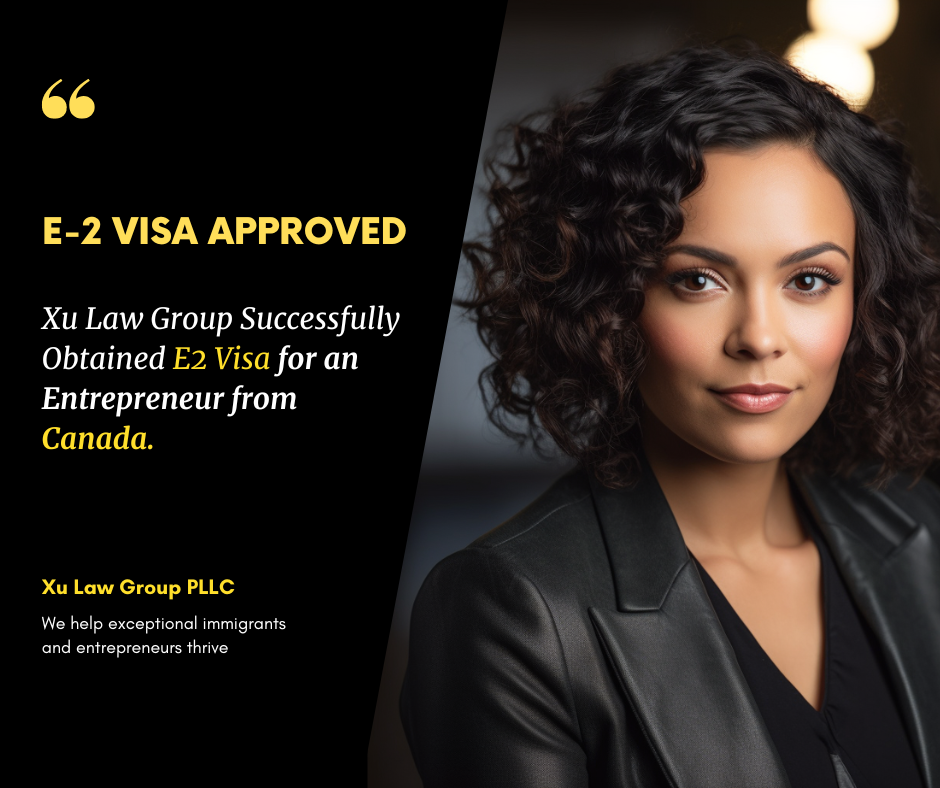
O-1A Visa For Scientists, Researchers, and Engineers
The O-1A extraordinary ability visa for individuals with extraordinary abilities is reserved for scientists & researchers who have published articles or books in professional journals, joined prestigious associations that qualified their work, and won nationally or internationally recognized awards.
O1A extraordinary ability visa
The O-1A extraordinary ability visa is a non-immigrant visa used by extraordinary and talented individuals in the fields of education, business, science, and athletics. These extraordinary individuals include entrepreneurs, educators, athletes, scientists, and engineers who bring their talent to the United States.
The O-1A visa allows these talented individuals to temporarily work in the United States in three-year increments, with the potential to renew indefinitely. As its name suggests, to qualify for the O-1A extraordinary ability visa, an individual must demonstrate a record of “extraordinary achievement.”
O1A visa eligibility criteria:
If you have won a major, internationally recognized award like Nobel Prize, Oscar, Emmy, Grammy, Director’s Guild Award, Pulitzer Prize, or their equivalents, you are immediately eligible for O-1A.
The majority of O-1A applicants will not have such achievements under their belt. Fortunately, there are ways to get an O-1 VISA as long as you meet 3 of the following O-1A Visa criteria:
You’ve received national or international recognition, either through major internationally recognized awards or prizes in your field
You are a member of a prestigious association in your field
There are major media coverage or major trade publications about your achievements in the field of endeavor
You have made original scientific, scholarly, or business-related contributions of major significance in your field
You have written and published scholarly articles in professional journals or major media in your field
You command a higher salary compared to your peers in the same field
You’ve served as a judge in a contest evaluating others’ work in your field
You have served in a critical role or critical and essential capacity employee of a prestigious organization in your field
If you still don’t meet 3 of these criteria, don’t despair. You may still be able to prove your O-1A extraordinary ability visa qualification by submitting other reliable evidence establishing that you will have a positive impact on the economy, you’ve enjoyed commercial success in your field, or that your work has been displayed, exhibited, and showcased.
Now, we will introduce each criterion in detail:
For scientists and researchers, awards from well-known national institutions and national or internationally recognized conferences from their fields of study are great supporting evidence. Doctoral dissertation and Ph.D. fellowships may be acceptable as well. However, school-related scholarships awarded during your Master's and bachelor's program do not count.
Examples of acceptable prizes and awards include Nobel Prize, the Abel Prize, Fields Medal, Sloan Research Fellowships sponsored by Alfred P. Sloan Foundation, NSF fellowship, and grants, USDA fellowship and grants, etc.
Applicants need to submit documented evidence to prove that a) they have won the award, and b) the award is of international or national importance. The evidence includes, but is not limited to:
Statistical evidence showing how many people receive this award/fund each year
Criteria for winning the award
The qualification and reputation of the organization in the field of research
Document proving the significance of the award in the field of research
Previous winners of the award with national/international reputation and achievements
Scientists who are members of exclusive associations or organizations with high standards picking their members are qualified for this criteria. For example, membership in the National Academy of Science, IEEE (Institute of Electrical and Electronics Engineers) fellowship, and AAAI (Association for the Advancement of Artificial Intelligence) fellowship.
The membership criteria need to be explicit and highly selective. Applicants need to prove membership was evaluated by nationally or internationally recognized experts in the discipline. Membership based solely on years of experience and levels of education doesn’t meet this criterion. For example, the association cannot simply be an alumni club of an educational institution that members can join as long as they graduated.
Major press and media publications covering the applicant’s personal story or the applicant’s scientific achievements may meet this criterion. Brief citations and passing references of the applicant's work may not be as effective. However, material focusing on the research of the applicant’s team may be considered as long as the applicant can prove their significant contribution to the team’s work.
Examples of major media and publications include media outlets and press such as the New York Times, Discovery Magazine, ABC Science, Cosmos Magazine, Scientific American, and National Geographic.
Applicants need to include the following information about each publication
Copy of the complete article (includes source name, title, date, and author)
Highlighted paragraphs where the applicant or their work is mentioned
Cover page of the journal if printed
Certified translation if the article is in a foreign language
Scientists’ original scientific or scholarly related contributions in their discipline are critical evidence for an O1A visa. For example, published materials about the significance of the applicants’ original work, approved patents with evidence of commercial application, testimonials from industry experts, and significant citations of their scholarly research are all acceptable evidence.
Evidence must show the applicant’s work had widespread circulation and is frequently cited by others in the field to prove the significance of the work.
Applicants must prove they have written and published articles in professional journals with international readership (i.e. JSTOR).
Some notable professional journals include Science, Nature, and Cell. Note that professional journals and media publications are different sources. Professional journals are well-known and recognized scholarly journals in the field written by professionals and reviewed by experts. Articles published in media publications are reviewed by editors and usually written by non-specialists.
USCIS looks at the intended audience of the professional journals and the circulation & readership data of the professional journals when evaluating the submitted publications. Applicants should be the first author or one of the primary authors of the published material. Include peer reviews of the published material if it is available.
Applicants need to prove higher salaries or other remunerations compared to peers in the field and in the same geographic area. Examples of evidence would include tax returns, pay statements, a contract, and a job offer letter.
Applicants need to demonstrate that they’re invited to judge or review others' work. The review of journal articles and peer review of scholarly articles, and government research funding programs may satisfy this criterion.
Applicants need to submit a copy of the request from a journal to review work and also evidence supporting applicants who completed the review, such as a certificate of review.
Applicants should demonstrate evidence that they played a critical role in a prestigious organization in their field. Examples include senior faculty or researchers for a distinguished academic department or program or a member of a key committee within a distinguished organization.
O1A visa application process
In order to apply for the O-1A Visa, applicants typically work with a sponsoring employer or agent to file form I-129 and supporting evidence. It is worth emphasizing that working with a good immigration attorney to craft your supporting evidence is a critical component of O-1A Visa success. Your attorney will guide you through obtaining solid detailed recommendation letters from people at the top of your field. They will draft a convincing petition letter that highlights your past achievements and puts you in a good position to obtain the O-1A status.
Your attorney will then file the I-129 form and any supporting evidence to the USCIS. Premium processing is available for an O-1A visa for an additional fee. Once your petition is approved, the O-1A worker may begin working in the US.
O1A visa processing time:
Premium processing is available for expedited O-1A approvals within 2 weeks.
Normally, USCIS will take 3 to 6 months to adjudicate the petition.
O1A visa cost and fees:
Attorney Fees
Attorney fees for preparing an O1A entrepreneur visa range between $8,000 to $12,000 at a prestigious firm. This fee will cover the following:
Strategy and guidance throughout the O1A visa application process to make your case as strong as possible;
Drafting the comprehensive attorney letter presenting your eligibility as an extraordinary ability individual;
Researching and assembling all supporting materials to make a compelling case;
Preparation of all requisition forms and fees;
Assistance with drafting recommendation letters;
Toni Xu is an experienced immigration attorney who represents immigrants with extraordinary abilities.
The information on this page should not be construed as legal advice.














